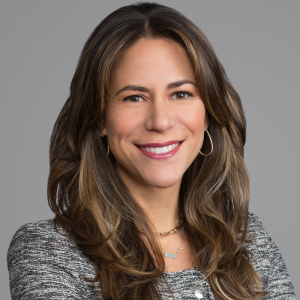Men Who Get It: Andrew Glincher, CEO/Managing Partner, Nixon Peabody
“Each time I receive a diversity award, I think to myself that we will know we’re doing the right thing when we’re no longer giving out awards for doing the right thing,” says Andrew Glincher, CEO and Managing Partner of international law firm Nixon Peabody LLP.
Understanding Diversity Through Personal Experience
As the head of Nixon Peabody, Glincher leads 1,500 colleagues, including more than 650 attorneys who collaborate across practice areas in cities throughout the U.S. and with alliance firms around the world. But he came to this lofty position from a humble background, as a first-generation college graduate who grew up in less affluent circumstances than many of his peers, paying for his education 100 percent through work, scholarships and loans. “That different socioeconomic background gives me a heart for underdogs and a great appreciation for anyone who has had challenges,” he says.
Glincher brings a business background to the field, including teaching for 23 years for the business school at his alma mater Boston College. While he’s been at Nixon Peabody his entire career, he says that it has been about five different firms during his tenure, growing from 60 to 1,500 professionals. He has been the CEO for eight years and prior to that was the managing partner in Boston, the firm’s largest office, for seven years, at Peabody & Brown, NP’s predecessor. He was also elected to the firm’s executive committee when he was elected equity partner.
The Business Case for Diversity
Glincher believes that different perspectives yield better results and better teams, but they also makes the workplace more fun. “I enjoy bringing out the best in people, and it’s easy when you’re working with people you like, who have tremendous skills to succeed and that you want to be successful. Our team here is passionate about what they do, and that engagement makes my job a lot easier,” he says, adding that it reminds him of the two decades he spent teaching. “When you’re engaging with different types of people and personalities, it makes the workday so much more fun, and better outcomes are a great byproduct.”
His belief is that when all else is equal, it’s important to support the diverse person. “That can be controversial, but it’s necessary until we have a diverse workforce that mirrors our clients. Once we are caught up and are fully diversified in a way that’s representative of our client base then maybe we are there,” he says. But he notes, lawyers focus on what’s measurable, so requirements for diversity keep people accountable.
Seeing Blind Spots Clearly
A supporter of mandatory implicit and unconscious bias training, Glincher says it’s important for everyone to realize we all have blind spots since we’re a function of our perspectives and how we grew up. “It’s something to be aware of, but not ashamed of, but understanding your biases can help you overcome them.”
He says that while he wouldn’t hesitate to politely mention a bias on display…such as if someone made a remark about a woman candidate that they wouldn’t have made about a male…he finds that it’s almost always due to ignorance rather than intent. “I want to create awareness, but not embarrass people.”
In evaluating talent, he always looks toward the end game. “It’s not fair to compare someone who is just starting out to where another person is ending when you are looking for a replacement. I will often point out that someone else was in the exact same position themselves when I promoted them.” He learned early on that it’s key not to look at what someone has accomplished to date since that might not be a fair yardstick for comparison, but instead their potential. “You wouldn’t compare a new Minor Leaguer to a Major League baseball player at the end of his career. You have to give talent an opportunity to show what they can do, rather than comparing them to the success of someone in a role they’ve not yet held.”
Promoting Work/Life Balance
And of course, women can be their own worst critics, such as when they ask to be considered for counsel rather than partner, but Glincher will encourage them to live up to their potential and then figure out how to make it work. The firm’s policies help, as they are proactive in helping women—and all employees—achieve a better work/life balance. That includes generous maternity and paternity leave policies and supportive on-ramping when women return. For example, even if they come back at full-time pay, new mothers are only required to do 80 percent of the work for the first six months. “They can take that time to figure out how they are going to balance, and then we are open to other arrangements if they decide they need that,” he says, adding that the firm has made partners from associates who work part time.
“Our priority is to attract, retain and promote diverse individuals by creating more opportunities for attorneys from all backgrounds, races, genders and religions. Having a variety of perspectives enables us to create even more innovation for our clients,” he points out.











